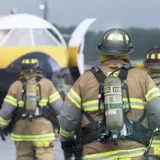Why Choose Basic Emergency Response Training program?
**1. Life-Saving Skills: **
Learn vital techniques that can make the difference between life and death. Our comprehensive training covers first aid, CPR, and basic emergency response strategies to ensure you are prepared for any situation.
**2. Experienced Instructors:
Our program is led by certified professionals with extensive experience in emergency response.
**3. Hands-On Training:
Theory alone isn’t enough. Our program includes hands-on practice sessions, allowing you to apply what you’ve learned in simulated emergency situations.
**4. Flexible Learning Options:
We offer a variety of training formats to accommodate your schedule, including online courses, in-person workshops, and blended learning options.
**5. Certification:
Upon successful completion of the course, you’ll receive a Basic Emergency Response Training certification, validating your ability to respond effectively in emergencies.
- Community Impact:
Become a valuable asset to your community. By learning emergency response skills, you can contribute to the safety and well-being of those around you.
Program Highlights
Core Modules:
– **Introduction to Emergency Response: ** Understand the fundamentals of emergency response and the importance of quick action.
– **First Aid Essentials: ** Learn basic first aid techniques, including wound care, treating burns, and managing fractures.
CPR and AED Training:
– **Cardiopulmonary Resuscitation (CPR):** Master CPR techniques for adults, children, and infants.
– **Automated External Defibrillator (AED):** Learn how to use an AED to assist someone experiencing cardiac arrest.
**Emergency Scenarios: **
– **Shock Management: ** Understand the signs of shock and learn how to provide appropriate care.
**Disaster Preparedness: **
– **Natural Disasters: ** Prepare for earthquakes, floods, hurricanes, and other natural disasters.








